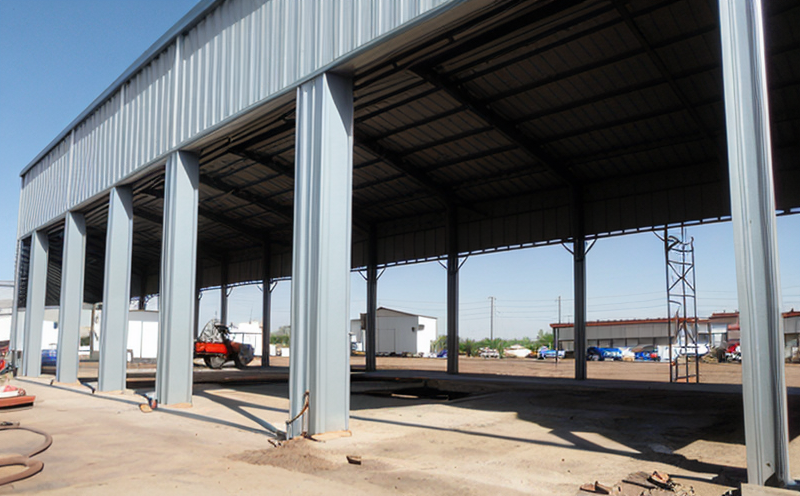Residual Solvent Screening by GC MS Test
The Residual Solvent Screening by Gas Chromatography-Mass Spectrometry (GC-MS) test is a critical analytical procedure used in the pharmaceutical, food and beverage, and chemical industries. This method ensures that products are free from hazardous solvents that could compromise their safety or efficacy.
Residual solvent testing is essential for ensuring product compliance with regulatory standards such as those set by the United States Food and Drug Administration (FDA) and European Medicines Agency (EMA). The GC-MS technique provides high sensitivity, selectivity, and accuracy in detecting even trace levels of solvents. This makes it an indispensable tool for quality assurance departments.
In this service, we utilize state-of-the-art GC-MS instrumentation to perform residual solvent screening according to established methods like USP and ICH Q3C(R8). Our team of experts ensures that each sample is prepared meticulously, using validated protocols. The testing process involves derivatization when necessary and the analysis of a wide range of solvents including acetone, methanol, ethanol, acetonitrile, toluene, and others.
The results are reported comprehensively with detailed information on detected compounds, their concentrations, and compliance status relative to specified limits. This service is crucial for maintaining product integrity and ensuring regulatory compliance across the building & infrastructure sector where steel and metal structures often require stringent testing standards due to the use of various solvents during fabrication processes.
Our GC-MS laboratory adheres strictly to ISO 17025 accreditation, guaranteeing that all tests are conducted under controlled conditions. This ensures reliability and traceability of results which is vital for maintaining high-quality products in the building & infrastructure industry.
Why It Matters
The importance of residual solvent screening by GC-MS cannot be overstated, especially within industries dealing with hazardous materials like steel and metal structures. Compliance with regulatory requirements ensures public safety while protecting brand reputation and business integrity.
- Avoidance of Health Risks: Ensuring no harmful solvents remain in final products protects end-users from potential health hazards.
- Regulatory Compliance: Meeting stringent standards like those outlined by FDA, EMA, and other regulatory bodies is mandatory for maintaining market access.
The reliability of GC-MS testing contributes significantly to the overall quality control process, thereby enhancing customer confidence in our products. In buildings and infrastructure projects involving steel and metal structures, the use of appropriate solvents during fabrication can affect structural integrity if not monitored properly. Thus, rigorous testing is imperative.
Industry Applications
| Application | Description |
|---|---|
| Pharmaceutical Manufacturing | Screening for compliance with USP and ICH Q3C(R8) guidelines. |
| Food & Beverage Production | Detection of solvent residues in packaging materials to ensure food safety. |
| Chemical Manufacturing | Monitoring process solvents to prevent contamination and maintain product purity. |
| Steel Fabrication | Evaluation of residual solvents used in welding and coating processes for structural integrity. |
- Pharmaceutical: Ensures that active pharmaceutical ingredients are free from harmful substances.
- Beverage: Guarantees that containers do not contain any traces of solvents which could leach into the product.
The GC-MS test is versatile and applicable across various sectors, making it an essential tool in maintaining high standards of quality within these industries. In steel fabrication specifically, this testing ensures that the use of appropriate solvents does not compromise the structural integrity or safety of the final product.
Eurolab Advantages
At Eurolab, our expertise in residual solvent screening by GC-MS is unmatched. Our cutting-edge laboratory facilities and highly qualified technical staff ensure precision and accuracy in every test performed.
- Sophisticated Equipment: Equipped with top-tier GC-MS instruments to deliver reliable results.
- Comprehensive Reporting: Detailed reports providing comprehensive analysis including detected compounds, concentrations, and compliance status.
- Accurate Compliance: Our testing meets or exceeds the requirements set by international standards like USP , ICH Q3C(R8).
We understand that every client has unique needs. That's why we offer tailored solutions to meet specific project requirements. With a proven track record of delivering consistent and accurate results, Eurolab stands out as your partner in ensuring product safety and compliance.





